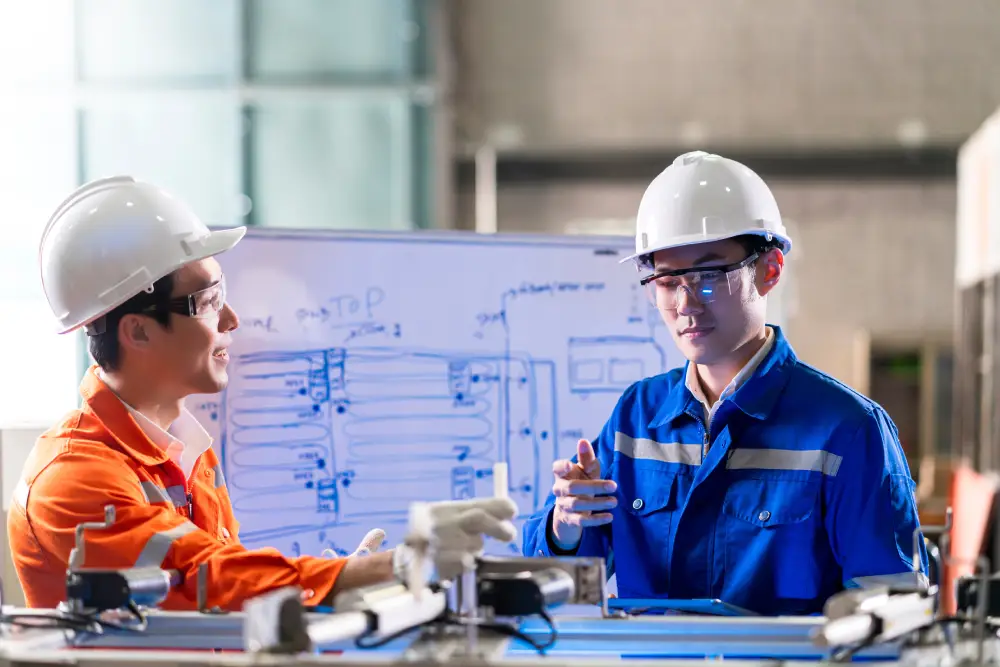Introduction
Modern buildings require more than just structural integrity; they need efficient systems for heating, ventilation, power distribution, water supply, and waste management. This is where an MEP engineer comes in. MEP engineers specialize in Mechanical, Electrical, and Plumbing (MEP) systems, ensuring that buildings operate smoothly, efficiently, and safely. In this article, we will explore the roles and responsibilities of an MEP engineer and their significance in modern construction.
1. Who is an MEP Engineer?
An MEP engineer is a professional responsible for designing, planning, and overseeing the installation and maintenance of mechanical, electrical, and plumbing systems in buildings. They work closely with architects, contractors, and project managers to ensure these critical systems function optimally and comply with regulatory standards.
MEP engineers are essential in both residential and commercial construction projects, helping create sustainable, energy-efficient, and comfortable environments for occupants.
2. Key Responsibilities of an MEP Engineer
Mechanical Responsibilities
The mechanical aspect of an MEP engineer’s job primarily involves heating, ventilation, and air conditioning (HVAC) systems. Some key responsibilities include:
- Designing and implementing HVAC systems for temperature control and air quality.
- Conducting energy efficiency assessments to minimize power consumption.
- Ensuring proper ventilation and airflow distribution within buildings.
- Selecting appropriate heating and cooling systems based on project needs.
- Troubleshooting and maintaining HVAC equipment to ensure longevity and performance.
Electrical Responsibilities
Electrical systems are crucial for any modern building, and an MEP engineer plays a vital role in their design and maintenance. Their responsibilities include:
- Designing electrical power distribution systems to meet energy demands.
- Ensuring the integration of backup power solutions such as generators and UPS systems.
- Implementing lighting systems that are energy-efficient and sustainable.
- Ensuring proper wiring, grounding, and circuit protection to prevent electrical hazards.
- Incorporating smart building technologies and automation for enhanced functionality.
Plumbing Responsibilities
Plumbing systems ensure the efficient distribution of water and the safe disposal of wastewater. An MEP engineer oversees:
- Designing water supply and drainage systems for residential and commercial buildings.
- Implementing fire protection systems such as sprinklers and hydrants.
- Ensuring compliance with plumbing codes and regulations.
- Installing sustainable plumbing solutions like rainwater harvesting and greywater recycling.
- Conducting inspections to prevent leaks, contamination, and water damage.
3. Why MEP Engineers are Crucial in Construction Projects
The expertise of an MEP engineer is essential for the success of any construction project. Some of the key benefits they provide include:
- Enhancing Energy Efficiency
MEP engineers design systems that reduce energy consumption by optimizing HVAC performance, implementing LED lighting, and integrating renewable energy sources like solar panels.
- Ensuring Safety and Compliance
From fire protection systems to electrical safety measures, MEP engineers ensure that buildings meet safety codes and legal regulations to protect occupants from potential hazards.
- Reducing Operational Costs
By designing efficient systems, an MEP engineer helps reduce long-term maintenance costs, lower energy bills, and extend the lifespan of critical building components.
- Improving Indoor Air and Water Quality
MEP engineers contribute to healthier living and working environments by designing proper ventilation systems, ensuring clean water supply, and implementing air filtration solutions.
4. The Role of MEP Engineers in Different Sectors
- Residential Buildings
In residential projects, MEP engineers design efficient HVAC systems, electrical wiring, and plumbing layouts to enhance comfort and functionality.
- Commercial and Office Spaces
For commercial buildings, MEP engineers ensure optimal lighting, ventilation, and power distribution to improve productivity and energy efficiency.
- Healthcare Facilities
Hospitals and healthcare facilities require specialized MEP solutions, including sterilization systems, medical gas pipelines, and emergency power backup.
- Industrial Projects
Factories and industrial facilities need complex MEP designs that include heavy-duty HVAC, fire suppression systems, and high-voltage electrical solutions.
5. Future Trends in MEP Engineering
The field of MEP engineering is continuously evolving with advancements in technology and sustainability. Some of the future trends include:
- Building Information Modeling (BIM): This technology allows MEP engineers to create 3D models of building systems for improved accuracy and efficiency.
- Smart Building Systems: Integration of IoT-based MEP solutions for real-time monitoring and automation.
- Sustainable Design: Increased focus on eco-friendly HVAC systems, energy-efficient lighting, and water-saving plumbing technologies.
- Renewable Energy Integration: Incorporating solar, wind, and geothermal energy sources into MEP designs.
Conclusion
An MEP engineer plays a crucial role in modern construction, ensuring that buildings are safe, efficient, and sustainable. Their expertise in mechanical, electrical, and plumbing systems contributes to improved energy efficiency, cost savings, and enhanced occupant comfort. As technology advances, MEP engineers will continue to play a pivotal role in shaping the future of smart and sustainable buildings.
By understanding the responsibilities of an MEP engineer, project owners and stakeholders can better appreciate their contribution to successful construction projects and long-term operational efficiency.

